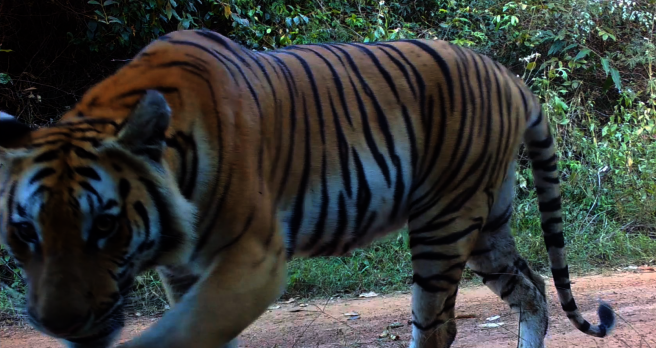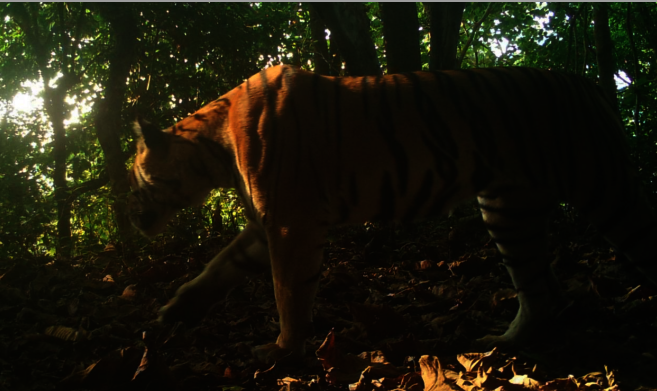By Jo B | Senior Fundraising Executive
Species Highlight – Indochinese Tiger
Through DSWF’s continued support to our ground-based conservation partners in Thailand, one of the world’s last remaining populations of Indochinese Tigers, which without long term conservation support would likely now be extinct, is now stable and slowly increasing.
The Dong Phayayen–Khao Yai (DPKY) Forest Complex is a UNESCO World Heritage Site in Thailand. It encompasses five protected areas across 6,155km2, and it is one of Thailand’s two priority sites for tiger conservation given its key population of Indochinese tigers. Only approximately 350 Indochinese tigers remain in the wild globally, with around half of these in Thailand.
Our ground-based conservation partners working within the complex have recently reported an increase in tiger breeding in the last 12 months, with three sightings of adult females with cubs as well as sightings of new adult tigers within the complex. Through long-term monitoring via camera trap surveys, our partners continue to identify and record tiger sightings and use the data to enhance ranger patrols within the area.
Tigers in Thailand face many challenges:
DSWF are continuing to support rangers working within the complex, ensuring they have kit and supplies for weeklong patrols, including water filters to ensure they avoid disease from contaminated water sources, with fresh water in low supply in the area. In addition, we are supporting training and workshops for rangers to improve their knowledge and skills so they can stay safer in the field and expertly manage and mitigate any poaching incidents.
Our team on the ground also work closely with local communities living along the edges of the DPKY complex, providing education and conservation awareness to schools, youth groups, and adults to improve conservation knowledge and discourage snaring and foraging within the protect areas. Developing these relationships helps mitigate human-wildlife conflict and encourage peaceful co-existence with wildlife.
With your ongoing support we can continue to aid and fund our partners on the ground protecting this vital habitat, not only for this vital population of Indochinese tigers but also for the many other wildlife populations that reside there, including Asian elephant and the Sunda pangolin.
Stay up to date with our work and how your generous support is making a difference; receive exciting wildlife conservation stories and hear about forthcoming campaigns, fundraising initiatives and events: Stay In Touch
By Jo B | Supporter Care
By Jo B | Supporter Care & Database Executive
Project reports on GlobalGiving are posted directly to globalgiving.org by Project Leaders as they are completed, generally every 3-4 months. To protect the integrity of these documents, GlobalGiving does not alter them; therefore you may find some language or formatting issues.
If you donate to this project or have donated to this project, you can recieve an email when this project posts a report. You can also subscribe for reports without donating.
Support this important cause by creating a personalized fundraising page.
Start a Fundraiser
